Annual Leon Levy Lectures
The Annual Leon Levy Lecture is held in honor of Leon Levy and his passion for expanding knowledge, the power of ideas, and a just and equitable society. This broad humanism also defined his philanthropy. During his early life, Leon Levy’s close relationship to his father, the economic analyst Jerome Levy, was a major influence on his career and his values. As Leon remembered, “Dad did not view economics as a way to make money but as a way to improve society.” This was a fundamental belief Leon shared. Leon spent his professional life on Wall Street, starting as a research analyst right out of the U.S. Army, and within three years he was the youngest partner of Oppenheimer & Co. From the beginning of his career he was a generous patron of the arts and benefactor of a wide range of causes and institutions; philanthropy was not something he turned to once he made money. Leon was guided by his boundless curiosity, optimism, and desire to enable individuals to reach their full potential. “I give funds with few strings attached. I believe that liberal arts education is both important and imperiled, the study of arts, ideas, history, and politics prepares students to enjoy life as well as contribute to society.”
The Leon Levy Lectures are supported by the Peter Jay Sharp Foundation and the Leon Levy Foundation.
Framing Conquest as Deliverance: Lessons from Assyria in the 10th-9th Centuries BCE
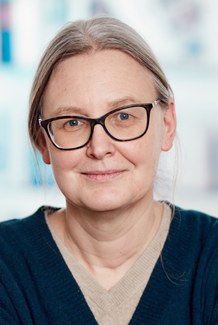
The 19th Annual Leon Levy Lecture, which will take place on December 1, 2025, will be given by Karen Radner, who holds the Alexander von Humboldt Chair for the Ancient History of the Near and Middle East at LMU Munich. In the 10th century BCE, the formerly grand kingdom of Assyria consisted only of what is today northern Iraq and centered on the three cities Assur, Nineveh (modern Mosul) and Arbela (modern Erbil). The loss of its much more extensive territories a century earlier was keenly felt by king and court, and this lecture focuses on the political discourse of that time and in the decades of conquest that followed. We analyse how that conquest was deliberately framed as the moral obligation to deliver the “tired Assyrians” from oppressive foreign rule. In doing so, we not only encounter Assyria in its widely acknowledged role as a pathfinder empire, but also as a nascent nation state. The kingdom must be seen as an early example of a political project that combines both these two elements: it is an “empire-state”, to use the term coined by distinguished NYU historians Jane Burbank and Frederick Cooper.
The following lectures have been delivered in this series:
On Celts, Celticness, and Celtology: Reconciling Ancient and Modern Identities
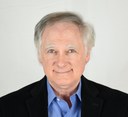 The 18th Annual Leon Levy Lecture (2024) was given by Michael Dietler, Professor of Anthropology and affiliated faculty in the Classics Department at the University of Chicago.
The 18th Annual Leon Levy Lecture (2024) was given by Michael Dietler, Professor of Anthropology and affiliated faculty in the Classics Department at the University of Chicago.
In Search of the "Evanescent" Garamantes: The Central Sahara in the 1st Millennium BCE
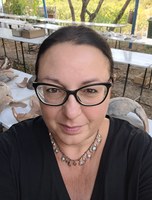 The 17th Annual Leon Levy Lecture (2023) was given by Lucia Mori, Associate professor of History of the ancient Near East at Sapienza University of Rome, and member of the PhD school of Philology and History of the Ancient World at Sapienza.
The 17th Annual Leon Levy Lecture (2023) was given by Lucia Mori, Associate professor of History of the ancient Near East at Sapienza University of Rome, and member of the PhD school of Philology and History of the Ancient World at Sapienza.
Mobile Cosmopolitanism: Diversity and Exchange in the Uyghur Steppe Empire (744-840)
 The 16th Annual Leon Levy Lecture (2022) was given by Michael R. Drompp, Professor Emeritus of History at Rhodes College.
The 16th Annual Leon Levy Lecture (2022) was given by Michael R. Drompp, Professor Emeritus of History at Rhodes College.
At Arm's Length: Barbarian Settlement, Law, and Ethnography in Roman Late Antiquity
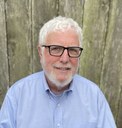 The 15th Annual Leon Levy Lecture (Spring 2022) was given by Michael Maas, the William Gaines Twyman Professor of History at Rice University.
The 15th Annual Leon Levy Lecture (Spring 2022) was given by Michael Maas, the William Gaines Twyman Professor of History at Rice University.
The Shape of the Ancient World: Global Development in the Distant Past
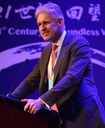 The 14th Annual Leon Levy Lecture (2020) was given by Ian Morris, Jean and Rebecca Willard Professor of Classics at Stanford University.
The 14th Annual Leon Levy Lecture (2020) was given by Ian Morris, Jean and Rebecca Willard Professor of Classics at Stanford University.
Assyria and the Hebrew Bible: A Reassessment
 The 13th Annual Leon Levy Lecture (2019) was given by Peter Machinist, Hancock Research Professor of Hebrew and Other Oriental Languages at Harvard University.
The 13th Annual Leon Levy Lecture (2019) was given by Peter Machinist, Hancock Research Professor of Hebrew and Other Oriental Languages at Harvard University.
Urbanism and the History of Architectural Restlessness
 The Twelfth Annual Leon Levy Lecture (2018) was given by Monica L. Smith, Professor in the Department of Anthropology and in the Institute of the Environment and Sustainability at the University of California, Los Angeles.
The Twelfth Annual Leon Levy Lecture (2018) was given by Monica L. Smith, Professor in the Department of Anthropology and in the Institute of the Environment and Sustainability at the University of California, Los Angeles.
The Roman Caesars in Modern Art: Missing Persons and Mistaken Identities
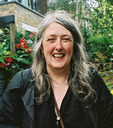 The Eleventh Annual Leon Levy Lecture (2017) was given by Mary Beard, Professor of Classics at the University of Cambridge.
The Eleventh Annual Leon Levy Lecture (2017) was given by Mary Beard, Professor of Classics at the University of Cambridge.
A People Without a Name or, Who Were the Hittites?
 The Tenth Annual Leon Levy Lecture (2016) was given by Theo van den Hout, Arthur and Joann Rasmussen Professor of Hittite and Anatolian Languages, The University of Chicago. Video of this lecture is available on the corresponding event page.
The Tenth Annual Leon Levy Lecture (2016) was given by Theo van den Hout, Arthur and Joann Rasmussen Professor of Hittite and Anatolian Languages, The University of Chicago. Video of this lecture is available on the corresponding event page.
Scythian Elite Burial Mounds in the Eurasian Steppes
 The Ninth Annual Leon Levy Lecture (2015) was given by Hermann Parzinger, President of the Stiftung Preussischer Kulturbesitz.
The Ninth Annual Leon Levy Lecture (2015) was given by Hermann Parzinger, President of the Stiftung Preussischer Kulturbesitz.
The Lure of Gold and Iron: China and the Steppe in the First Millennium BC
 The Eighth Annual Leon Levy Lecture (2014) was given by Jessica Rawson, Professor of Chinese Art and Archaeology, Institute of Archaeology, University of Oxford.
The Eighth Annual Leon Levy Lecture (2014) was given by Jessica Rawson, Professor of Chinese Art and Archaeology, Institute of Archaeology, University of Oxford.
Historical Perspectives on Sumerian Vistas
 The Seventh Annual Leon Levy Lecture (2013) was given by Piotr Michalowski, George G. Cameron Professor of Ancient Near Eastern Languages and Civilizations, University of Michigan, Ann Arbor.
The Seventh Annual Leon Levy Lecture (2013) was given by Piotr Michalowski, George G. Cameron Professor of Ancient Near Eastern Languages and Civilizations, University of Michigan, Ann Arbor.
Gods, Humans, and Rulers: Religion and Empire in Early China
 The Sixth Annual Leon Levy Lecture (2012) was given by Michael Puett, Walter C. Klein Professor of Chinese History, Harvard University.
The Sixth Annual Leon Levy Lecture (2012) was given by Michael Puett, Walter C. Klein Professor of Chinese History, Harvard University.
A Greek Statuary Complex at the Sarapieion of Memphis and the Early Ptolemaic Kings
 The Fifth Annual Leon Levy Lecture (2011) was given by Marianne Bergmann, Director Emeritus, Archaeologisches Institut, Universitaet Goettingen.
The Fifth Annual Leon Levy Lecture (2011) was given by Marianne Bergmann, Director Emeritus, Archaeologisches Institut, Universitaet Goettingen.
The Cultural Dynamism of Astral Science in the Hellenistic Age
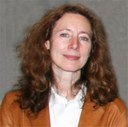 The Fourth Annual Leon Levy Lecture (2010) was given by Francesca Rochberg, Catherine and William L. Magistretti Distinguished Professor of Near Eastern Studies, University of California, Berkeley.
The Fourth Annual Leon Levy Lecture (2010) was given by Francesca Rochberg, Catherine and William L. Magistretti Distinguished Professor of Near Eastern Studies, University of California, Berkeley.
The Historian in the Future of the Ancient World: A View from Central Eurasia
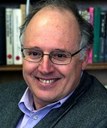 The Third Annual Leon Levy Lecture (2009) was given by Nicola di Cosmo, Luce Foundation Professor in East Asian Studies, Institute for Advanced Study, Princeton.
The Third Annual Leon Levy Lecture (2009) was given by Nicola di Cosmo, Luce Foundation Professor in East Asian Studies, Institute for Advanced Study, Princeton.
The History of the Sahara in Antiquity: Mirage or Scientific Project?
 The Second Annual Leon Levy Lecture (2008) was given by Mario Liverani, Professor Emeritus of Ancient Near East History, University of Rome La Sapienza.
The Second Annual Leon Levy Lecture (2008) was given by Mario Liverani, Professor Emeritus of Ancient Near East History, University of Rome La Sapienza.
The Horizons of Antiquity
 The First Annual Leon Levy Lecture (2007) was given by G.W. Bowersock, Professor Emeritus of Ancient History, Institute for Advanced Study, Princeton.
The First Annual Leon Levy Lecture (2007) was given by G.W. Bowersock, Professor Emeritus of Ancient History, Institute for Advanced Study, Princeton.